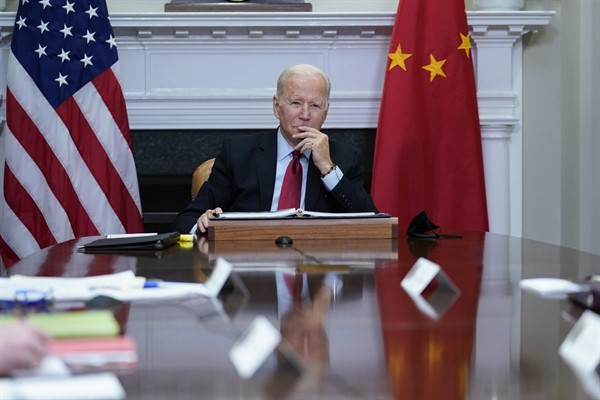It has not even been three months since Russia invaded Ukraine, and it remains far from clear as to when and how this conflict will end. Nevertheless, a robust discussion is already underway over the potential impact of Moscow’s aggression on U.S. foreign policy toward China as well as on Washington’s broader strategic outlook.
In the short term, it seems likely that the war will undercut U.S. efforts to rebalance its focus to the Asia-Pacific and strategic competition with China—ironically, because Ukrainian forces have performed far better than expected. Given the vast imbalance between Russia’s conventional military capabilities and those of Ukraine, many observers reasonably assumed that Ukraine would surrender quickly in the event of a full-scale Russian invasion. Had it done so, and had Ukraine suffered few military and civilian casualties, it is unclear whether the U.S. would have gotten drawn in significantly, as it would not have had sufficient time to coordinate a response with key allies and partners; nor would it have had to contend with Russia’s escalating brutality in its conduct of the war.
The more resistance Ukrainian forces marshal, the more military support the West is likely to provide and the more wanton and indiscriminate destruction Russian forces are likely to unleash—a vicious cycle that diplomatic efforts have a diminishing chance of breaking. The longer this war of attrition continues, moreover, the greater the chance that NATO and Russian forces will come into direct conflict—whether through inadvertent escalation or deliberate choice. Given that Russian President Vladimir Putin has proven far more risk tolerant than many observers had expected, one cannot rule out the possibility of his raising the stakes, especially considering his growing anger over the Russian military’s underperformance.

